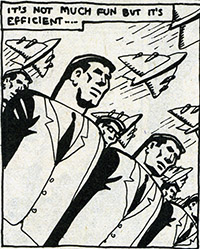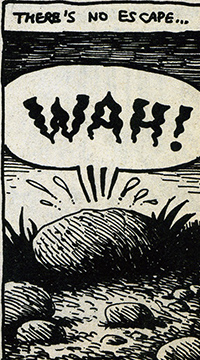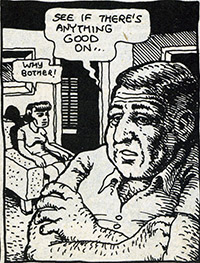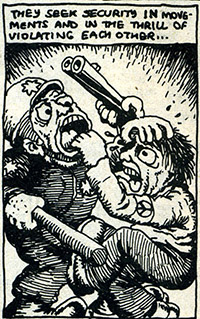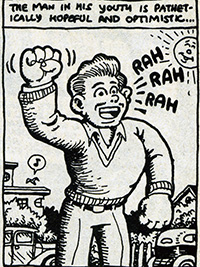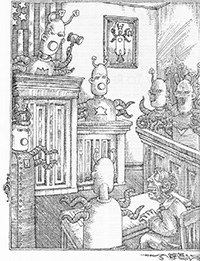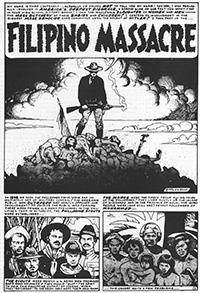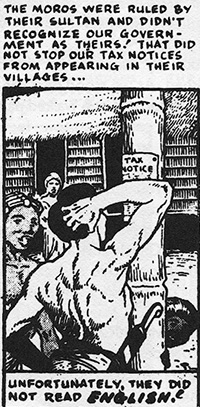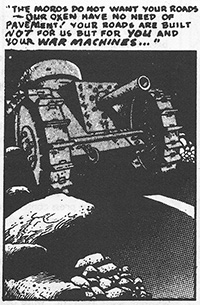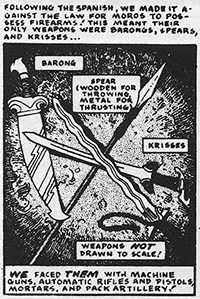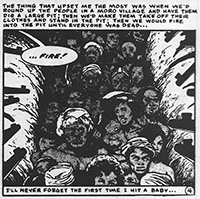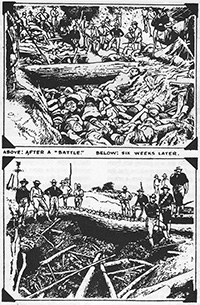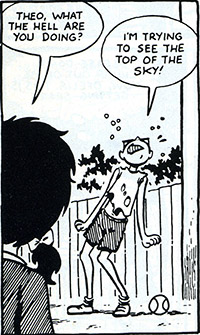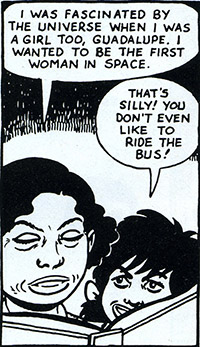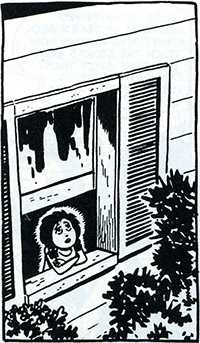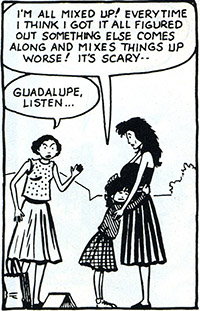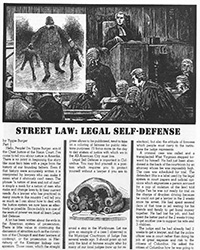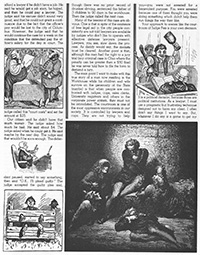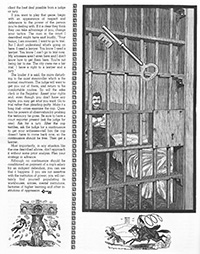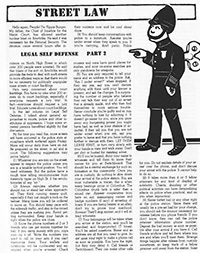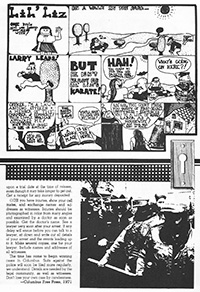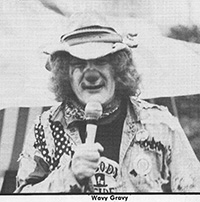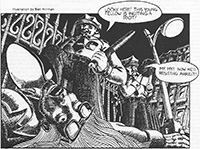OBJECTIVES By the end of this session you will be able to:
|
Tasks for this session
Before we start the 11th class session:
Read
Read pages 347-384 in Building Powerful Organizations by Michael Jacoby Brown. We finish the book this week.
Watch and Listen
There is nothing assigned for you to watch or listen to.
Tasks
Activity One
Attend our class at the beginning of the 10th session. We meet on Zoom.
Activity Two
Participate in the discussion boards to supplement our class meeting.
Activity Three
You should have finished the first experiential learning assignment by now. Write about it. Remember to write a descriptive account of what you did and what happened. Then, write some analysis of how you performed, how your guests reacted, and the things that seemed to shape the event. Write some evaluation of what you have learned and what seemed to work and what didn't work. For example, what have you learned from this experience? What will you do the next time you must guide a conversation and have an intentional conversation with persons whom you do not know well? What skills did you use?
Activity Four
Third experiential learning assignment. You should continue participating in a group, and try to apply some of the ideas we have learned in this class within the group. Practice your macro practice skills, and write about it in your journal. Or, observe how others in your group are practicing or not practicing such skills.
Activity Five
For your fourth experiential learning assignment (plan how you would collaborate or work with someone who is your opposite or adversary), you should complete that exercize now. Write up your proposal of how you would engage and work in an alliance with your target. What approach would you use? What is this the right approach? What generalizations can you make about macro practice based on your experience with this assignment?
Activity Six
For the fifth experiential learning assignment, continue to study human rights and the specific human rights issue where you will be doing advocacy. Write about the process in your journal.
In the Fall semester, the 10th class session usually comes at the end of October, and instead of meeting in the classroom on campus, we hold the tenth session on Zoom only.
1. Check in.
2. Discuss any macro practice that has been in the news.
3. Each person will present the documentaries they watched, and what they learned from those documentaries, and give their recommendations about those documentaries. It is important that you ask each other questions about the documentaries they watched.
4. We will share reports from the field, where you tell us about your experiences in the experiential learning assignments.
5. We will share your thinking on the Grand Challenges you are studying. What tasks are you considering, and what tactics and strategies are you imagining would be helpful? It is important to take time to disucss this now, in the middle of the semester, so that as you work on your paper in the coming weeks you will have some feedback on how you will approach the assignment and your writing.
6. We will talk about actions and strategies. Especially we must discuss the role of the organizer in evaluating actions and helping people learn from the actions they take.
Session Time Budget
3h 30m |
Canvas Discussion Boards and our class meeting at the start of the eighth session |
90m |
Write up a description, analysis, and evaluation of your social get-together for the first experiential learning assignment. The ideal is that you finish the first experiential learning assignment by this session, if not earlier. You may be running behind, and need to do this later. |
90m |
Read pages 347-384 in Building Powerful Community Organizations and with this you will finish the book. |
1h |
Continue your participation in a group or organization so that you can use this participation to inform your thinking with practical applications of what we are learning in this class. |
1h |
Work on your Grand Challenges Paper, doing research and background work. |
2h |
Finish up the 4th experiential learning assignment, writing up your plan for the way you would collaborate with someone who would normally be your political opponent. |
30m |
Do some research and preparation for your fifth experiential learning assignment (human rights advocacy) |
Discussion Board Questions (Activity One)
Go into Canvas, log in, and respond to the discussion questions for this session.
These are:
DQ 10-1: Check In
Check in for the tenth week of the semester. Tell us what is going on. Share something you have done in the recent days or weeks that you feel good about.
DQ 10-2: Your rival.
For the fourth experiential learning assignment, who did you choose as your political opposite or “enemy” and what did you learn about them as you did background research on their interests and life experiences? What did you choose as a topic or cause where you are in agreement with them? What did you imagine you might be able to do in a situation where you could work in alliance with them?
DQ 10-3: Reports from the field
Share your experience with the first experiential learning assignments? What problem or problems were identified as common to the persons in the gathering? What did you do to bring people together, help them feel comfortable, and get them talking about issues and problems they might share? What have you learned from the experience?
DQ 10-4: Building Community
Chapter 12 starts out with a discussion of building community, and stresses how an organization can become a source of mutual assistance. As people work together on some other project, they build friendships and relationships, and then they help each other out because they have personal connections. Another way to say this is to point out that our involvement—or our clients’ involvement—in organizations will build social capital (and possibly cultural capital and human capital as well). With this in mind, please reflect on these two claims, and whether/why you agree/disagree with them:
First, social workers practically have an ethical duty to be involved in some organizations so they can work on issues related to the core values of social work and build their network of contacts; and
Second, social workers practically have an ethical duty to encourage almost all their clients to get engaged or continue engagement with healthy and helpful organizations, because participating in such organizations prevents social isolation, enhances social capital, and is likely to be beneficial to almost any client.
DQ 10-5: Penser global, agir local
Brown, on page 351, briefly discusses the idea that we ought to act locally and think globally. As far as I know, the first time this motto appeared was When Rene Dubos was interviewed for the April 1978 EPA Journal (volume 3, number 4, see page 7). Here is the quotation:
...When I talk at universities to students, they always want to discuss saving hte globe, and I am all in favor of that of course. But I always answer, “It’s very good to think about problems in a global way. I think it is a good intellectual exercise, but the only way where you can do something is in your own locality. So think globally, but act locally. If you cannot do something about that stream or those lovely marshlands in your town, then how do you think you are going to save the globe?”
This came in the context of a reference to Voltaire’s Candide: “Let us cultivate our garden” in which a similar point is made. But of course, everyone can recognize the idea from one of the Four Books (the Great Learning attributed to Confucius):
物格而后知至。
When things are investigated, knowledge is extended.
知至而后意誠。
When knowledge is extended, the will becomes sincere.
意誠而后心正。
When the will is sincere, the mind is correct.
心正而后身脩。
When the mind is correct, the self is cultivated.
身脩而后家齊。
When the self is cultivated, the clan is harmonized.
家齊而后國治。
When the clan is harmonized, the country is well governed.
國治而后天下平。
When the country is well governed, there will be peace throughout the land.
At any rate, I want you to explain one of the “global” problems that concerns you, and explain what you know about some local example of that global manifested in ways that you directly experience it. Illustrate, if you can, how actions to address the local problem might contribute to solving the wider problem and “saving the globe” as Dubos said. Or, perhaps you may wish to suggest that acting locally is not sufficient, or is no longer a necessary first step, and you may have your reasons for saying the motto, “think globally, act locally” is not a very helpful bit of advice. Let us discuss this principle.
It would be nice if you did not use either of the examples given by Brown to illustrate the “act locally, think globally” motto: the civil rights movement and the work to establish unemployment insurance.
DQ 10-6: websites that Brown recommended
Please look up one of the websites recommended by Brown at the end of his book. For example, you might check out:
the Center for Community Change;
The Center for Health, Environment, and Justice;
The Gamaliel Network;
The Industrial Areas Foundation; and
The Midwest Academy;
Share in this thread what you found at the website you visited. How does the group seem to fit in with the vision of community organizing advocated for by Michael Jacoby Brown in Building Powerful Community Organizations? Is there some way in which the organization you investigated might be useful to you in your social work practice? How might you benefit from the organization you examined?
DQ 10-7: The King didn’t wake up one morning and say “all the people should be better paid.”
During the 10th session you should have read pages 347-384 (Section IV, “Our Future”) in Building Powerful Community Organizations. You will have noticed that Brown writes: “The free market has marvelous power to produce efficiently and develop new products and processes. It has brought us wonderful products at prices we can afford...”
And he also writes “The market also brings less attractive results. It allows tremendous inequalities of wealth, and opportunity....”
and “The market also produces what economists call ‘externalities’—such as pollution and inequality...”
Brown makes these observations about the free market as part of a claim that the free market must be restrained, and a further claim that restraint on the market has come from people who organized to gain power and used that power to force those in power to restrain the worst aspects of the free market.
Do you share this understanding of all the restraints that have been placed on capitalism and softened (somewhat) its hard edges? Those reforms that restrained the power and destruction of capitalism came from organized people demanding such reforms, rather than powerful persons choosing to enact such reforms simply because they were benevolent or had their values offended by the suffering and unfairness generated by the unrestricted free market? Do you agree? What informs your agreement or disagreement with the Brown’s claim that organizing brought about positive changes in our free market society?
DQ 10-8: The Human Material is Not Strong Enough?
As an optional source you may have consulted this week, I suggested you read chapter 11 (or listen to me reading it) in Political and Spiritual by Roger Gottlieb. He makes the case that we can see that in democratic capitalism, people will sit by and let horrible atrocities occur. Gottlieb compares the ability of people to deny the ecocide and climate catastrophe coming our way to the ability of “good Germans” to ignore the holocaust, and even the way victims of that shoah denied what was happening or would happen. Gottlieb says that there was resistence, and some people fought back. He says that the fact that people to resist evil and do try to fight to make things better suggests that maybe we can stop the ecocide and environmental apocalypse.
What is your reaction to this? Do you think that many forms of reform or radical suggestions for change in our society are unrealistic because people cannot live up to the expectations of utopian schemes? Do you think that liberal democracy and capitalism can avert self-destruction from the environmental destruction and wreckage caused by modern consumerism and materialism? If in fact people are potentially capable of making a better and sustainable society, what do you think is required from us—from yourself and your classmates, for example—to work toward this sustainable society where human rights and social justice are respected and we don’t wipe out most life through our destruction of the planet’s ecosystems?
DQ 10-9: Your Story
Share a story from your experiences so far this semester (your experiential learning assignments or something you have observed through your reading and thinking and watching films) that gives you hope that we can use macro practice to help our communities make progress toward a world where human rights and social justice are honored, and people are able to function and grow toward their highest potential.
Interesting Stuff To Explore (optional stuff)
Read chapter 11 in Political and Spiritual: Essays on Religion, Environment, Disability, and Justice by Roger S. Gottlieb (2015). Available from the Brookens Library at General Collection-Level 4 BL65.P7 G68 2015. I have prepared a 33 minute audio recording of your instructor reading the chapter, in AAC m4a format, and also a recording saved in mpeg mp3 format.
Here is the The Armed Conflict Location & Event Data Project (ACLED)’s US Crisis Monitor documenting demonstrations and political violence in the summer of 2020.
And, here are some stories about organizing and organizations, and some general community organizing resources:
- COFI Parent Leaders Spread the Word about Early Learning. November 26, 2019. Community Organizing and Family Issues.
- Collective Impact in Emergency Response: A Case Study of Milwaukee’s COVID-19 Civic Response Team. August 12, 2020. Collective Impact Forum.
- Successful Community Organizing for School Reform. Strong Neighborhoods; Strong Schools, the Indicators Project on Education Organizing. by Eva Gold, Elaine Simon, and Chris Brown.
- Strike Watch: Solidago Foundation's Rebecca Greenberg on Funding Democracy Defense from Georgia to Arizona. October 21, 2020. Interview with Rebecca Greenberg of the Solidago Foundation.
- Jerry Marx and Alison Rataj (2015) A Case Study in Organizing for Livable and Sustainable Communities.
- Telling Our Stories: Storytelling as Community Organizing. Stories of everyday people ending violence. From Creative Interventions.
- The Strengths and Challenges of Community Organizing as an Education Reform Strategy: What the Research Says (2011) by Michelle Renée &; Sra McAlister.
- Catherine Crystal Foster & Justin Louie (2010) Grassroots Action and Learning for Social Change: Evaluating Community Organizing.
- Larry Parachini and Sally Covington (2001) Community Organizing Toolbox
- The Dr. Marshall Ganz’s Organizing: People, Power, Change.
- Gary Delgado’s Reflection on Movement Building and Community Organizing (from 2009).
- Chapter 1, section 8, Some Lessons Learned on Community Organization and Change from the Community Tool Box at the University of Kansas.
Come to the next class ready.
Our 11th class is one where we have a Zoom meeting. Come to class prepared to discuss the conclusion of Michael Jacoby Brown’s text on strong community organizations. Also come with some experiences to share from your experiential learning assignments. Also come ready to tell us about your thoughts about your grand challenges paper.

